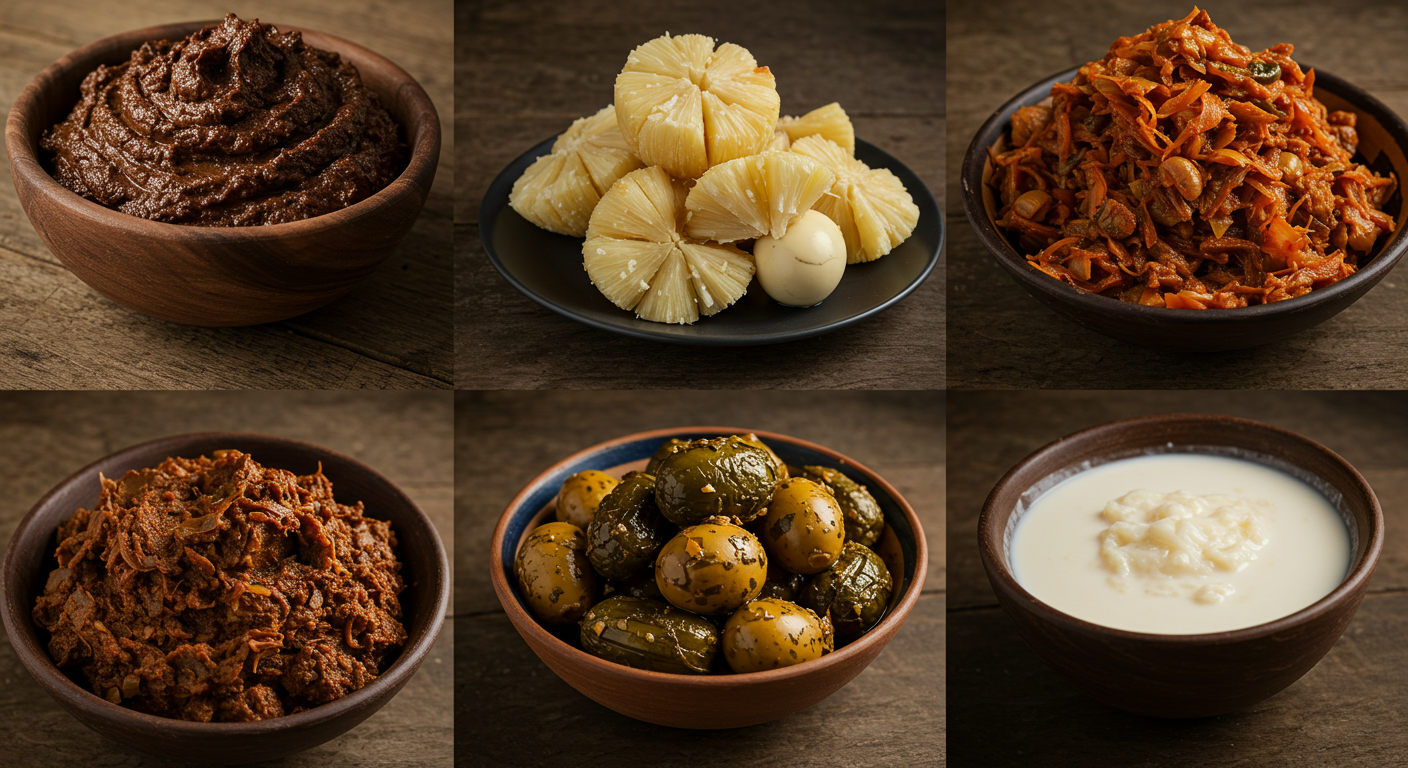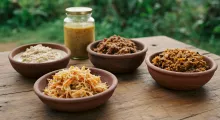Fermentation is a cornerstone of African cuisine, enhancing not only flavor but also nutrition and digestion.
Ogi, a fermented maize porridge from Nigeria, is a probiotic powerhouse. Traditionally made by soaking maize kernels and allowing them to ferment for several days, ogi is ideal for gut health and is often used as a weaning food for babies.
Koko (fermented millet porridge), common in Ghana, offers similar benefits and is rich in iron, magnesium, and B vitamins. It’s typically served with koose (bean cakes) or bread for breakfast.
In Ethiopia and Eritrea, injera—a spongy flatbread made from fermented teff flour—is both a staple and a probiotic food. Teff is high in fiber, protein, and essential minerals, while fermentation makes the nutrients more bioavailable.
Nshima (Zambia), kenkey (Ghana), and ugali (East Africa) also undergo fermentation in their traditional forms, aiding digestion and flavor development.
These fermented foods are not only culturally significant but also support immune health, reduce inflammation, and improve nutrient absorption—making them some of Africa’s most powerful superfoods.
// Amazon affiliate shopping cart script (function () { const affiliateTag = "your-affiliate-tag"; // Replace with your actual Amazon affiliate tag const items = [ { asin: "B08N5WRWNW", quantity: 1 }, { asin: "B07FZ8S74R", quantity: 1 }, { asin: "B089KV4YYX", quantity: 1 }, { asin: "B08J5F3G18", quantity: 1 } ]; function createAmazonCartLink() { let cartUrl = "https://www.amazon.com/gp/aws/cart/add.html?"; cartUrl += `AssociateTag=${affiliateTag}`; items.forEach((item, index) => { cartUrl += `&ASIN.${index + 1}=${item.asin}&Quantity.${index + 1}=${item.quantity}`; }); return cartUrl; } function createCartButton() { const button = document.createElement("button"); button.innerText = "Add to Amazon Cart"; button.style.padding = "10px 20px"; button.style.fontSize = "16px"; button.style.backgroundColor = "#ff9900"; button.style.color = "#ffffff"; button.style.border = "none"; button.style.cursor = "pointer"; button.style.borderRadius = "5px"; button.onclick = function () { window.location.href = createAmazonCartLink(); }; document.body.appendChild(button); } document.addEventListener("DOMContentLoaded", createCartButton); })();


